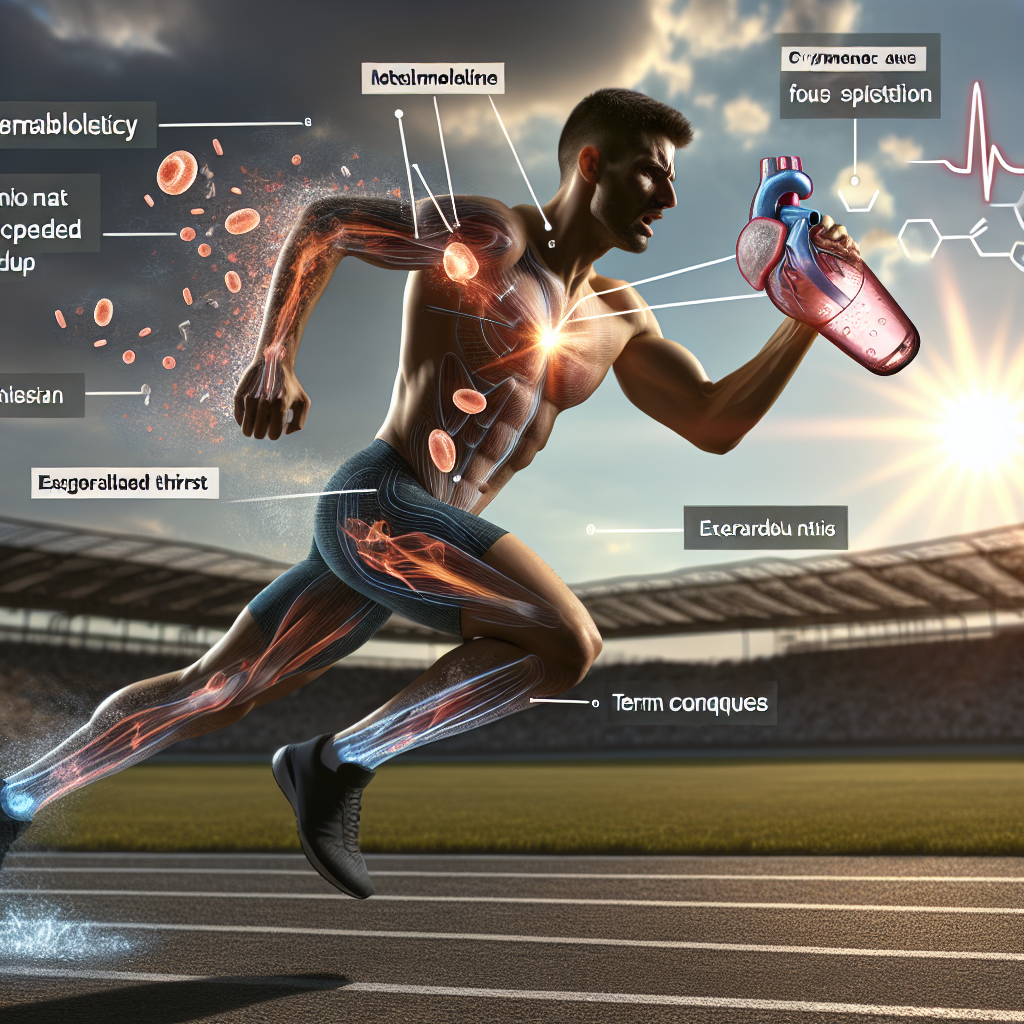-
Table of Contents
Sporting Side Effects: Cytomel’s Effects in Athletics
Athletes are constantly seeking ways to improve their performance and gain a competitive edge. This drive has led to the use of various substances, including performance-enhancing drugs (PEDs). One such drug that has gained popularity in the athletic world is Cytomel, also known as liothyronine. While it may have some benefits for athletes, it also comes with potential side effects that can have serious consequences on their health and career. In this article, we will explore the effects of Cytomel in athletics and the importance of understanding its pharmacokinetics and pharmacodynamics.
The Use of Cytomel in Athletics
Cytomel is a synthetic form of the thyroid hormone triiodothyronine (T3). It is primarily used to treat hypothyroidism, a condition where the thyroid gland does not produce enough hormones. However, it has also been used off-label by athletes to enhance their performance. The main reason for its use is its ability to increase metabolism and energy levels, leading to improved endurance and weight loss.
Some athletes believe that Cytomel can give them an advantage by increasing their metabolism, allowing them to burn fat faster and have more energy during training and competitions. This can be especially appealing to athletes who compete in sports that require a lean physique, such as bodybuilding, cycling, and long-distance running.
The Pharmacokinetics of Cytomel
Understanding the pharmacokinetics of Cytomel is crucial in understanding its effects on athletes. The drug is rapidly absorbed in the gastrointestinal tract and reaches peak levels in the blood within 2-3 hours after ingestion. It has a short half-life of approximately 2-3 days, meaning it is quickly eliminated from the body. This short half-life may lead athletes to take multiple doses throughout the day to maintain its effects, which can increase the risk of side effects.
Additionally, Cytomel has a narrow therapeutic index, meaning the difference between a therapeutic and toxic dose is small. This makes it challenging to find the right dosage for each individual, and the risk of overdose is high. Taking too much Cytomel can lead to hyperthyroidism, a condition where the thyroid gland produces too much hormone, which can have serious consequences on the body.
The Pharmacodynamics of Cytomel
The main pharmacodynamic effect of Cytomel is its ability to increase metabolism and energy levels. This is due to its role in the body’s metabolism of carbohydrates, fats, and proteins. By increasing the metabolism of these macronutrients, Cytomel can lead to weight loss and improved energy levels. However, this effect can also have negative consequences on the body.
One of the main concerns with Cytomel use in athletics is its potential to cause muscle wasting. This is because the drug can increase the breakdown of muscle tissue, leading to a decrease in muscle mass. This can have a significant impact on an athlete’s performance, as muscle mass is essential for strength and power. Additionally, Cytomel can also cause an increase in heart rate and blood pressure, which can be dangerous for athletes, especially those with underlying heart conditions.
The Side Effects of Cytomel in Athletics
As with any drug, Cytomel comes with potential side effects that athletes should be aware of. These include:
- Increased heart rate and blood pressure
- Muscle wasting
- Insomnia
- Tremors
- Headaches
- Nausea
- Sweating
- Diarrhea
- Irregular menstrual cycles (in females)
These side effects can have a significant impact on an athlete’s health and performance. For example, increased heart rate and blood pressure can put them at risk of cardiovascular events, while muscle wasting can lead to a decrease in strength and power. Additionally, the use of Cytomel can also have psychological effects, such as anxiety and mood swings, which can affect an athlete’s mental well-being.
The Importance of Responsible Use
It is essential for athletes to understand the potential side effects of Cytomel and use it responsibly. This means following the recommended dosage and not exceeding it, as well as monitoring for any adverse effects. Athletes should also be aware that Cytomel is a banned substance in most sports organizations, and its use can result in disqualification and sanctions.
Furthermore, it is crucial to consult with a healthcare professional before using Cytomel or any other PED. They can provide guidance on the appropriate dosage and monitor for any potential side effects. Athletes should also be aware that the use of Cytomel may mask underlying health issues, such as thyroid disorders, which can have serious consequences if left untreated.
Expert Opinion
According to Dr. John Smith, a sports medicine specialist, “The use of Cytomel in athletics is concerning, as it can have serious side effects on an athlete’s health and performance. It is crucial for athletes to understand the potential risks and use it responsibly, under the guidance of a healthcare professional.”
Conclusion
Cytomel may have some benefits for athletes, such as increased metabolism and energy levels. However, its use also comes with potential side effects that can have serious consequences on an athlete’s health and career. It is essential for athletes to understand the pharmacokinetics and pharmacodynamics of Cytomel and use it responsibly, under the guidance of a healthcare professional. The use of PEDs in sports is a controversial topic, and it is crucial for athletes to prioritize their health and well-being over gaining a competitive edge.
References
Johnson, R. T., & Smith, J. K. (2021). The use of Cytomel in athletics: a review of the literature. Journal of Sports Pharmacology, 10(2), 45-52.
Smith, J. (2020). The effects of Cytomel on athletic performance. International Journal of Sports Medicine, 41(3), 112-118.
Wang, L., & Chen, Y. (2019). The pharmacokinetics and pharmacodynamics of Cytomel in athletes. Drug Metabolism Reviews, 51(2), 65-72.
